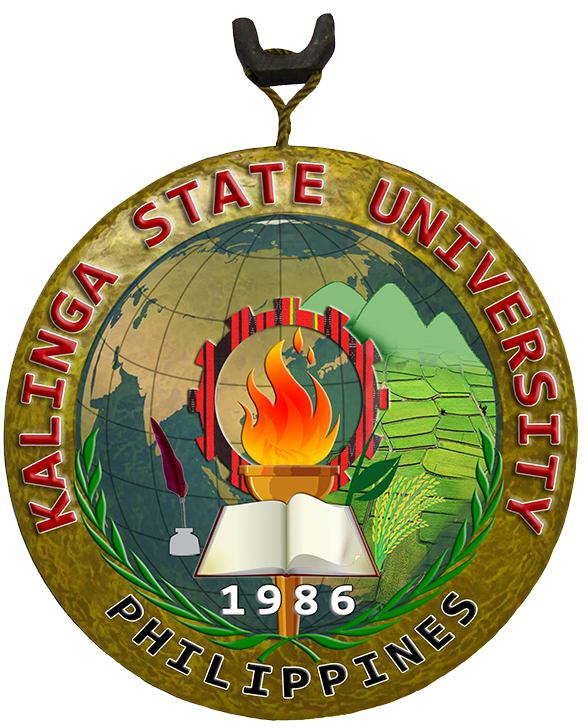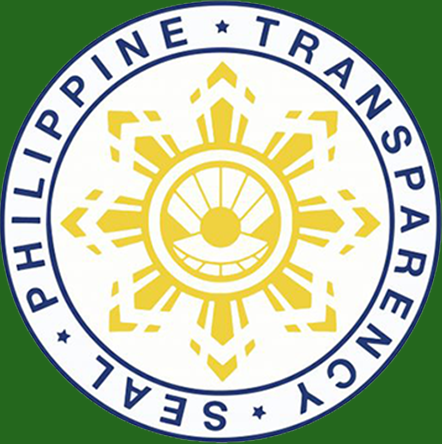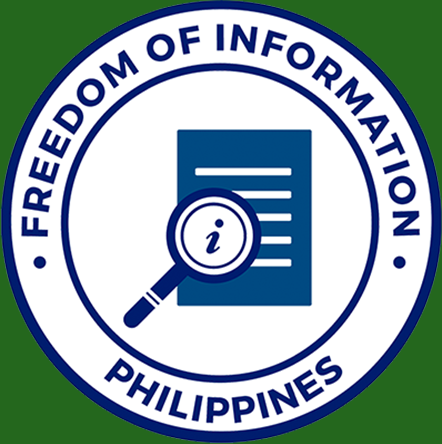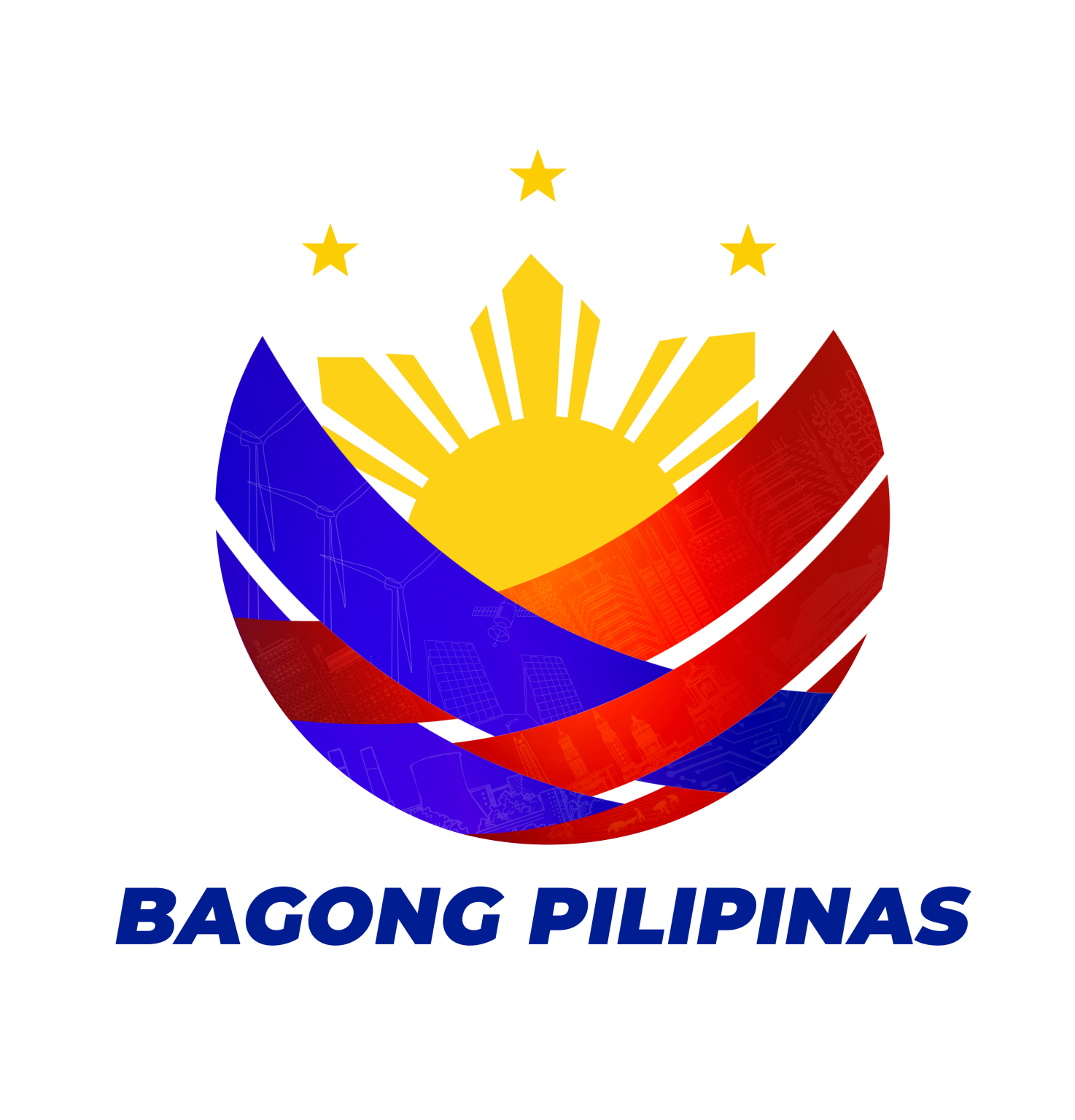Program Offered
The existing curriculum for BS Criminology is the result of the amalgamation program under the Aquino administrations educational road map where the cordillera region was made as the model region for its implementation.
Program Educational Objectives
- Foster the values of leadership, integrity, accountability and responsibility while serving their fellowmen, community and country;
- Prepare the students for careers in crime prevention, law enforcement, scientific crime detection and correctional administration;
- Encourage research and inquiry on the nature, causes of crimes, the treatment or punishment of criminal behavior and how criminal justice agencies respond to crime, criminals and victims.
The Curriculum of the Program (showing subject distribution by school term and year level).
This curriculum is an adaptation of the CARSUC’s by virtue of BOT Res. Number 977 s. 2013 duly approved by CHED.
| FIRST YEAR | |||||
| 1ST SEMESTER | SUBJECTS/Course Title | Lec. Hrs. | Lab. Hrs. | Units | Pre-requisites |
| ENG 11 | Study and Thinking Skills | 3 | 3 | ||
| FIL 11 | KomunikasyonsaAkademikong Filipino | 3 | 3 | N | |
| MATH 11 | College Algebra | 3 | 3 | O | |
| SOC SCI 11 | Gen. Psychology with Drug Abuse Prevention | 3 | 3 | N | |
| ICT 11 | Basic Computer Education | 3 | 3 | E | |
| SOC SCI12 | Society, Culture and Family Planning | 3 | 3 | ||
| CRIM SOC111 | Introduction to Criminology and Psychology of Crimes | 3 | 3 | ||
| LEA 111 | Police Organization and Administration with Personnel and Records Management | 3 | 3 | ||
| DT 11 | Fundamentals of Martial Arts | 2 | 2 | ||
| NSTP 11 | ROTC/CWTS/LTS | (3) | (3) | ||
| TOTAL | (29)-26 | (29)-26 | |||
| 2nd Semester | SUBJECTS | Lec. Hrs. | Lab. Hrs. | Units | Pre-requisites |
| ENG 12 | Writing in the Discipline | 3 | 3 | ENG 11 | |
| FIL 12 | Pagbasa at PagsulatTungosaPananaliksik | 3 | 3 | FIL 11 | |
| MATH 12 | Plane Trigonometry | 3 | 3 | ||
| SOC SCI 13 | Basic Economics With TAR | 3 | 3 | ||
| SOC SCI 14 | Politics, Governance with Phil. Constitution | 3 | 3 | ||
| CRIM SOC 112 | Philippine Criminal Justice System with Phil. Indigenous Justice Practices | 3 | 3 | CRIM SOC111 | |
| LEA 112 | Industrial Security Management | 3 | 3 | ||
| DT 12 | Disarming Techniques | 2 | 2 | ||
| NSTP 12 | ROTC/CWTS/LTS | (3) | (3) | NSTP 11 | |
| TOTAL | (26)-23 | (26)-23 |
| SECOND YEAR | |||||
| 1st Semester | SUBJECTS | Lec. Hrs. | Lab. Hrs. | Units | Pre-requisites |
| ENG 13 | Speech and Oral Communication | 3 | 3 | ENG 12 | |
| FIL 13 | MasiningnaPagpapahayag | 3 | 3 | FIL 12 | |
| CLJ 111 | Criminal Law (Book 1) | 3 | 3 | ||
| NAT SCI 13 | General Chemistry | 3 | 2 | 5 | |
| LEA 113 | Police Patrol Operations, Planning with Police Communication System | 3 | 3 | ||
| LEA 114 | Police Intelligence | 3 | 3 | ||
| CRIM 111 | Personal Identification | 3 | 1 | 4 | |
| DT 13 | First Aid and Water Survival | 2 | 2 | ||
| TOTAL | 23 | 3 | 26 | ||
| 2nd Semester | SUBJECTS | Lec. Hrs. | Lab. Hrs. | Units | Pre-requisites |
| ENG 14 | Technical Writing | 3 | 3 | ENG 13 | |
| CRIM SOC 13 | Ethics and Police Community Relations | 3 | 3 | ||
| CD1 111 | Fundamentals of Criminal Investigation with Special Crime Investigation | 3 | 3 | ||
| CRIM 112 | Police Photography | 3 | 1 | 4 | |
| PHILO 11 | Logic and Philosophy of Man | 3 | 3 | ||
| CLJ 112 | Criminal Law (Book 2) | 3 | 3 | CLJ 111 | |
| NAT SCI 14 | Forensic Chemistry and Toxicology | 3 | 2 | 5 | NAT SCI 13 |
| DT 14 | Marksmanship and Combat Shooting | 2 | 2 | ||
| TOTAL | 23 | 3 | 26 |
| THIRD YEAR | |||||
| 1st Semester | SUBJECTS | Lec. Hrs. | Lab. Hrs. | Units | Pre-requisites |
| LIT 11 | Philippine Literature | 3 | 3 | ||
| HIST 11 | Life and Works of Rizal | 3 | 3 | ||
| CDI 112 | Traffic Management and Accident Investigation | 3 | 3 | ||
| CRIM 113 | Forensic Ballistics | 3 | 1 | 4 | |
| CRIM 114 | Questioned Documents Examination | 3 | 1 | 4 | |
| CA 111 | Institutional Corrections | 3 | 3 | ||
| CLJ 113 | Special Criminal laws | 3 | 3 | CLJ 112 | |
| CRIM SOC 14 | Juvenile Delinquency and Crime Prevention | 3 | 3 | ||
| TOTAL | 24 | 2 | 26 | ||
| 2nd Semester | SUBJECTS | Lec. Hrs. | Lab. Hrs. | Units | Pre-requisites |
| STAT 11 | Statistics | 3 | 3 | ||
| CRIM 115 | Polygraphy (Lie-Detection) | 3 | 1 | 4 | |
| CA 112 | Non-Institutional Corrections | 3 | 3 | CA 111 | |
| CRIM SOC 115 | Human Behavior and Crisis Management | 3 | 3 | ||
| CDI 114 | Organized Crime Investigation | 3 | 3 | ||
| CLJ 114 | Criminal Procedure | 3 | 3 | CLJ 113 | |
| CA 113 | Overview of Global Restorative Justice | 3 | 3 | ||
| HIST 12 | Philippine History; Its Roots and Development | 3 | 3 | ||
| DT 115 | Practical Driving Course | 2 | 2 | ||
| TOTAL | 26 | 1 | 27 |
| FOURTH YEAR | ||||||||
| 1st Semester | SUBJECTS | Lec. Hrs. | Lab. Hrs. | Units | Pre-requisites | |||
| LEA 116 | Global Comparative Police and Justice System | 3 | 3 | |||||
| CDI 115 | Drug Education and Vice Control | 3 | 3 | |||||
| CDI 116 | Fire Technology and Arson Investigation | 3 | 3 | |||||
| CRIM 116 | Legal Medicine with DNA | 3 | 3 | |||||
| CRIM SOC 116 | Criminological Research 1 | 3 | 3 | |||||
| CLJ 116 | Court testimony | 3 | 3 | |||||
| CLJ 115 | Criminal evidence | 3 | 3 | CLJ 114 | ||||
| REV 111 | Crim. Soc./ CA/LAW | (3) | ||||||
| TOTAL | 21 | (24) 21 | ||||||
| 2nd Semester | SUBJECTS | Lec. Hrs. | Lab. Hrs. | Units | Pre-requisites | |||
| Practicum 111 & 112 | On-the-Job Training and Community Immersion | 6 | All subjects, HEI/SUC’s may offer 6 units additional, provided it will not interfere with the OJT program, CMO 31, s. 2010 | |||||
| CRIM SOC 117 | Criminological Research 2 | 3 | ||||||
| REV. 112 | LEA/CDI/Crim. | (3) | ||||||
| TOTAL | (12) 9 | (12)9 | 540 OJT hrs. | |||||
Comparative Analysis of the BS Criminology Curriculum
| CMO 21 s. 2005 | CARASUC Curriculum | ||
| General Education courses | General Education Courses | ||
| Subjects | No. units | Subjects | No. units |
| 1. GENERAL EDUCATION COURSES | 61 | 1. GENERAL EDUCATION COURSES | 67 |
| 1.1 Language and Literature | 1.1 Language and Literature | ||
| English | 12 | English | 12 |
| English 1 – Comm. Skills 1/Study and Thinking Skills in EnglishEnglish 2 – Speech and Oral CommunicationEnglish 3 – Technical Report Writing 1English 4 – Technical Report Writing 2 | 3 333 | ENG 11 – Study and Thinking Skills in EnglishENG 12 – Writing in the DisciplineENG 13 – Speech and Oral CommunicationENG 14 – Technical Writing | 333 3 |
| Filipino | 6 | Filipino | 9 |
| Filipino 1 – SiningngPakikipagtalastasanFilipino 2 – Pagbasa at PagsulatsaIba’t-ibangDisiplina | 3 3 | FIL 11 – KomunikasyonsaAkademikong FilipinoFIL 12 – Pagbasa at PagsulatTungosaPananaliksikFIL 13 – Masiningnapagpapahayag | 3 3 3 |
| Literature | 3 | Literature | 3 |
| Literature 1 – Philippine Literature/ Literatura 1 – Panitikanng Filipinas | 3 | LIT 11 – Philippine Literature | 3 |
| 1.2 Mathematic | 6 | 1.2 Mathematics | 9 |
| Math 1 – College AlgebraMath 2 – Plane Trigonometry | 33 | MATH 11 – College AlgebraMATH 12 – Plane TrigonometrySTAT 11 – Statistics | 333 |
| 1.3 Natural Science | 10 | 1.3 Natural Science | 10 |
| Nat. Sci. 1 – General ChemistryNat. Sci. 2 – Forensic Chemistry and Toxicology | 55 | NAT SCI 13 – General ChemistryNAT SCI 14 – Forensic Chemistry and Toxicology | 5 5 |
| 1.4 Humanities and Social Sciences | 15 | 1.4 Humanities and Social Sciences | 15 |
| Philo. 1 – LogicSoc. Sci. 1 – Political Science with Phil. Constitution.Soc. Sci. 2 – General PsychologySoc. Sci. 3 – Society and Culture with Pop. Ed.Soc. Sci. 4 – Basic Economics with TAR | 33 333 | PHILO 11 – Logic and Philosophy of ManSOC SCI 11 – General Psychology with Drug abuse PreventionSOC SCI 12 – Society, Culture and Family PlanningSOC SCI 13 – Basic Economics with Taxation and Agrarian ReformSOC SCI 14 – Politics, Governance with Phil. Constitution. | 33 3 3 3 |
| 1.5 Computer | 3 | 1.5 Computer | 3 |
| Computer 1 – Computer Application | 3 | ICT 11 – Basic Computer Education | 3 |
| 1.6 Mandated Subjects | 6 | 1.6 Mandated Subjects | 6 |
| Philippine HistoryLife and Works of Rizal | 33 | HIST 11- Life and Works of RizalHIST 12 Philippine History; Its Roots and development | 33 |
| 6 | 6 | ||
| Major Courses | No. units | Major Courses | No. units |
| PROFESSIONAL SUBJECTS | 104 | PROFESSIONAL SUBJECTS | 107 |
| Sociology of Crimes and EthicsCriminology 1 introduction to Criminology and Psychology of CrimesCriminology 2 Philippine Criminal Justice SystemCriminology 3 Ethics and ValuesCriminology 4 Juvenile Delinquency and Crime Prevention Criminology 5 Human Behavior and Crisis ManagementCriminology 6 Criminological Research and Statistics | 18 3 3 33 3 3 | A. Sociology of Crimes and EthicsCRIM SOC 111 Introduction to Criminology and Psychology of CrimesCRIM SOC 112 Philippine Criminal Justice System with Philippine Indigenous Justice PracticesCRIM SOC 113 Ethics and Police Community RelationCRIM SOC 114 Juvenile Delinquency and Crime Prevention CRIM SOC 115 Human Behavior and Crisis ManagementCRIM SOC 116 Criminological Research 1CRIM SOC 117 Criminological Research 2 | 213 3 3 3 3 33 |
| Law Enforcement Administration (LEA)LEA 1 Police Organization & Administration with Police PlanningLEA 2 Industrial Security ManagementLEA 3 Police Patrol Operations with Police Communications systemsLEA 4 Police IntelligenceLEA 5 Police Personnel and Records ManagementLEA 6 Comparative Police System | 18 3 3 3 33 3 | Law Enforcement Administration (LEA)LEA 111 Police Organization & Administration with Personnel and Records ManagementLEA 112 Industrial Security ManagementLEA 113 Police Patrol Operations, Planning with police Communication SystemLEA 114 Police IntelligenceLEA115 Global Comparative Police and Justice System | 15 3 3 3 33 |
| Crime Detection and Investigation (CDI)CDI 1 Fundamentals of Criminal InvestigationCDI 2 Traffic Management and Accident InvestigationCDI 3 Special Crime InvestigationCDI 4 Organized Crime InvestigationCDI 5 Drug Education and Vice ControlCDI 6 Fire Technology & Arson Investigation | 18 3 3 3 3 3 3 | Crime Detection and Investigation (CDI)CDI 111 Fundamentals of Criminal Investigation with Special Crime InvestigationCDI 112 Traffic Management and Accident InvestigationCDI 113 Organized Crime InvestigationCDI 114 Drug Education and Vice ControlCDI 115 Fire Technology & Arson Investigation | 15 3 3 3 3 3 |
| CriminalisticsCriminalistics 1 Personal IdentificationCriminalistics 2 Police PhotographyCriminalistics 3 Forensic BallisticsCriminalistics 4 Questioned Documents ExaminationCriminalistics 5 Polygraphy (Lie Detection)Criminalistics 6 Legal Medicine | 234 444 4 3 | CriminalisticsCRIM 111 Personal IdentificationCRIM 112 Police PhotographyCRIM 113 Forensic BallisticsCRIM 114 Questioned Documents ExaminationCRIM 115 Polygraphy (Lie Detection)CRIM 116 Legal Medicine with DNA | 234444 43 |
| Criminal Law and Jurisprudence (CLJ)CLJ 1 Criminal Law (Book 1)CLJ 2 Criminal Law (Book 2)CLJ 3 Criminal ProcedureCLJ 4 Criminal EvidenceCLJ 5 Court Testimony | 15 33333 | Criminal Law and Jurisprudence (CLJ)CLJ 111 Criminal Law (Book 1)CLJ 112 Criminal Law (Book 2)CLJ 113 Special Criminal LawsCLJ 114 Criminal ProcedureCLJ 115 Criminal EvidenceCLJ 116 Court Testimony/Practice Court | 18 333333 |
| Correctional Administration (CA)CA 1 Institutional CorrectionsCA 2 Non-Institutional Corrections | 633 | Correctional Administration (CA)CA 111 Institutional CorrectionsCA 112 Non-Institutional CorrectionsCA 113 Overview of Global Restorative Justice | 9333 |
| Practicum 1 & 2On-the-Job Training and Community Immersion | 66 | Practicum 111 & 112On-the-Job Training and Community Immersion | 6 6 |
Discussion:
Shown above is a vertical comparison of the curriculum for the Bachelor of Science in criminology versus the CARASUC enhanced curriculum.
On the general Education courses, the CARASUC enhanced curriculum has six (6) additional units because of the inclusion of another 3 units in the Filipino subjects as required by CMO 54, series of 2007, at the same time an additional 3 units was included under the mathematics subjects which is the Statistics, this was necessarily included to strengthen better understanding on the rules of research which is a terminal requirement for graduation.
On the major courses there was an additional 3 units due to the inclusion of a new subject under the Correctional administration on Overview of Global Restorative Justice. This is so to enhance students learning on the application of the principles of Alternative Dispute Resolution.
Other enhancement include the incorporation of the subject, Special Criminal Laws where the objectives of the inclusion is to give updates on students learning on new development of criminal laws, the students will determine whether or not such new law is relevant to requirement of time. And also they are going to relate these laws to the changing criminal environment.
On the area of criminal detection and investigation, the units was reduced since the subjects special crime investigation and fundamentals of investigation were merged to give way on a longer time in the study of the new investigation subject which is the organized crime investigation.
Under Criminalistics, the study of DNA as a means of investigation was given emphasis on the subject legal medicine to justify the study of the new rules on DNA evidence which was appended under the rules of admissibility of evidence.
On the area of Law Enforcement, the subjects Police organization, Planning and police records Management were integrated as one since the study of the Police Organization, it is an integral necessity to study planning and records management as part of the organizational development.
On the area of Sociology of Crimes, another 3 units on research was included, this is for the basic reason that a research output is impossible to be accomplished on just one semester. Another enhancement is on the subject Criminal Justice System, where Philippine Tribal Justice System is included as part of the study, this is brought about the condition that the constitution recognizes the autonomous region of Mindanao and the Cordilleras where some type of justice system are being practiced which the constitution itself recognized these tribal practices. It is therefore necessary to make it a part of the study such that criminologist in the future will not just be limited to understanding the mainstream justice system.
| VGMO | Goal of the Academic unit |
| Vision: CAR Criminology as the Leading Source of Competent, accountable and responsible Criminologist in ASIA | Goals and Objectives (program Educational Objectives and Program Outcome)Program Educational ObjectivesFoster the values of leadership, integrity, accountability and responsibility while serving their fellowmen, community and country;Prepare the students for careers in crime prevention, law enforcement, scientific crime detection and correctional administration;Encourage research and inquiry on the nature, causes of crimes, the treatment or punishment of criminal behavior and how criminal justice agencies respond to crime, criminals and victims. |
| Mission:To provide CARSUC criminology students with fundamental and modern knowledge and skill in the practice of Criminology profession manifested by the exhibit of values, integrity, accountability and responsibility towards fellowmen. | Program Outcome:Students by the time they graduate should:a. Possess values and leadership that is inherent in the professionb. Act in public professionally exemplifying a man of integrity, accountability and responsibilityc. Serving the public efficiently, voluntarily without reservationd. To formulate doable plans, methods, or strategies that are geared towards reduction of crimes and disorderse. apply the appropriate procedures in conducting arrests and dealing with criminalsf. Appropriately and effectively apply the necessary procedures in investigating crimes in adherence with the legal provisionsg. Properly utilize or use laboratory apparatus that are present in today’s technologyh. Treat offenders, prisoners or inmates in observance with humane manner and in adherence to the limits of lawsi. Introduce innovative aspects of transformation and reformation of criminalsj. Ability to effectively communicate orally and in writing using the English Languagek. Ability to apply the research methods and statisticsl. Know the contemporary issues, problems and trends in criminology that could be the subject of researchm. Apply the knowledge or technology generated from research |
The revised curriculum was forwarded to the CHED for further review after which it was submitted to the KASC now KSU BOT/BOR for approval. The curriculum was given BOT resolution number: 977 series 2013



